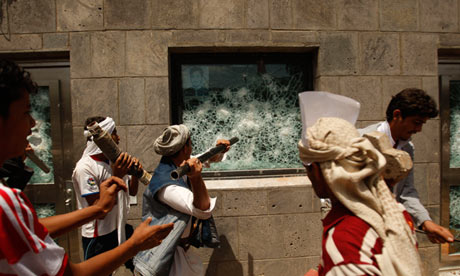By Ryan Aliman
Impunity Watch Reporter, Africa
BAMAKO, Mali – On Wednesday, a top U.N. Human Rights official accused radical Islamist rebels in northern Mali of using intimidation, and money from ransoms and drug trafficking to maintain control over the region.

Assistant Secretary-General for Human Rights Ivan Šimonovic made these remarks at a news conference in the U.N. Headquarters in New York, following his recent visit to Mali. The Islamists benefitting from the black market revenues have been enforcing an extremist interpretation of Sharia (Muslim law) and restrictions particularly targeting women since they took over the region in March.
“They are buying loyalty. They have tremendous resources to buy loyalty because they are now having kickbacks from narco-traffickers in the region,” said Šimonovic. Mali is a transit corridor for cocaine and other drugs from South America to Europe.
“There is also substantial ransom money that is being controlled by them,” Šimonovic said. However, Šimonovic added that this did not translate to support from the civilian population as “the overwhelming majority of people in the north are not supportive of the rebels and dislike what is happening.”
Šimonovic enumerated a whole laundry list of human rights abuses in his report which included: “very drastic punishments,” the recruitment of child soldiers, public executions, amputations, mutilations, and enforced marriages that are actually a smokescreen for enforced prostitution, terming the whole situation as “very bad.”
Šimonovic emphasized that children are particularly vulnerable to enlistment as child soldiers. Often children are enlisted to plant improvised explosives, with their families being given $600 for enlistment, and then $400 a month in a country where over half the population lives on $1.25 a day. Many teachers have also fled, fearing the imposition of this strict interpretation Sharia, which means many children are also missing out on education.
With respect to women’s rights, Šimonovic said, “The number of enforced marriages is increasing, the price to buy a wife is less than $1,000. After getting out of their families, the women, once forcefully married, quite often are by their so-called husbands married to other men after a very short while, which is in fact then a smokescreen for enforced prostitution and rapes that are taking place,”
One displaced woman he interviewed in the northern town of Mopti said she could no longer return to her hometown of Gao, where she had been a merchant, because women are not allowed to work under the strict interpretation of Sharia.
“Everybody is banned from listening to music, from smoking, women have to be covered but the women are also targeted in the sense of restricting their ability to work,” Šimonovic said.
Šimonovic said that “These were appalling violations of human rights,”. “But they were largely ad hoc in nature.” However, since Islamic groups such as Ansar Dine, the Movement for Oneness and Jihad in West Africa (MOJWA), and Al-Qaeda in the Islamic Maghreb (AQIM) took over the region, it witnessed human rights abuses of a “different character,” he noted.
The rebels captured the region in late March amid the chaos triggered by a military coup, and have since declared independence for the region they call ‘Azawad.’
For further information, please see:
RTT News – Islamists Accused of Using Intimidation, Drug Money to Control Northern Mali – 11 October 2012
ANGOP – Mali Extremists Abusing Rights, Targerting Children, Women – 11 October 2012
UPI – Mali Rebels Tied to Drug Trade – 11 October 2012
BBC News – Mali Islamists ‘Buying Child Soldiers, Imposing Sharia’ – 10 October 2012
All Africa – Mali: Islamists Use Fear, Drug Money to Maintain Control of Northern Mali – UN Rights Official – 10 October 2012
UN News Centre – Women Primary Victims of Violence in Nothern Mali, says UN Rights Official – 9 October 2012



